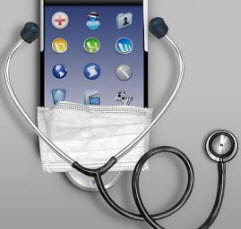
Beyond consumer-driven apps that count calories or encourage exercise, mobile technology is beginning to significantly change how doctors practice medicine.
When Dr. Paul Abramson treats patients, he has the usual assortment of medical tools, tests and protocols. And then there's the patient-gathered data he reserves for his most confounding cases.
Using an iPhone app, Abramson will have a patient with, say, mystifying migraines or seemingly inexplicable stomachaches self-track data such as how much sleep they're getting or what they're eating.
That information is eventually fed back to Abramson as potential clues to whatever medical mystery he's trying to solve. The result is a more complete picture of his patients that in turn makes it much easier for him to figure out what's going on.
"I am getting immeasurably more info about a patient than I could have gotten on my own," Abramson said. "Patients who have been my patients for years I'm finding out are completely different people than I thought they were."
"We're at a very interesting intersection of technology impacting clinical care, which hasn't really changed dramatically in 50 or 60 years," said Dr. Michael Blum, director of the Center for Digital Health Innovation at UCSF. "When we look back in 10 years, we're going to be amazed how far we've gone."
The ubiquity of smartphones has already had an effect on clinical practice in numerous obvious ways. Doctors can speedily access important information such as drug dosage recommendations or disease profiles as well as a patient's medical information. They can also more easily communicate about patients with specialists or other colleagues.
by Shane Turner via NursingFacultyJobs.com
No comments:
Post a Comment